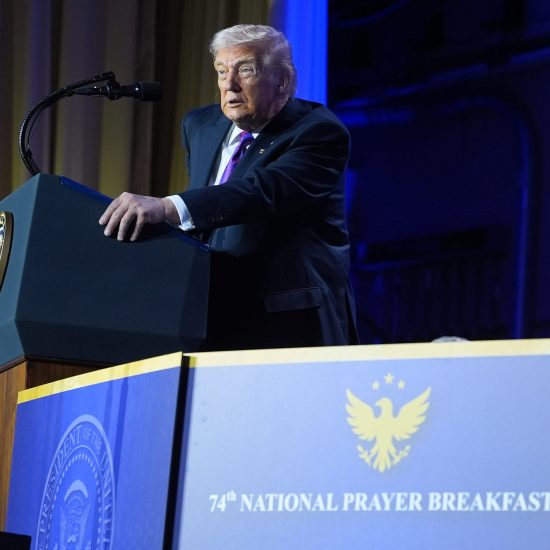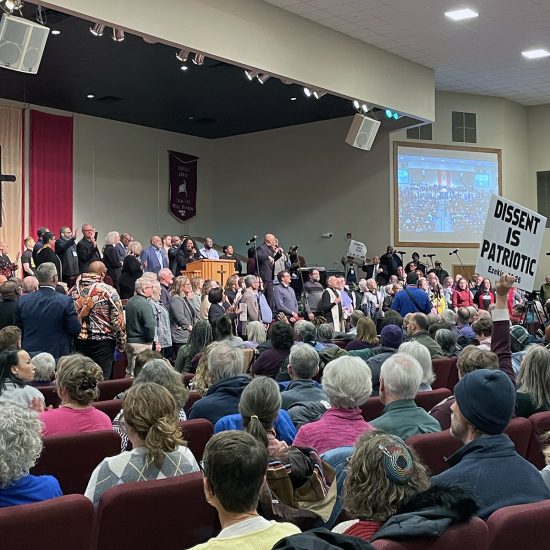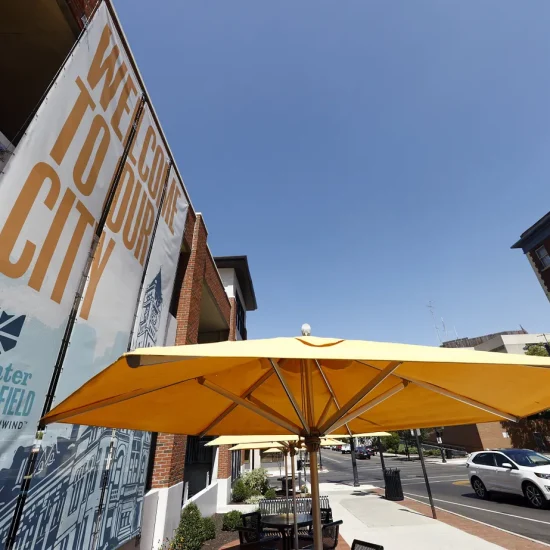
While attending divinity school, I spent four years worshiping and interning in a small mainline African American congregation on the west side of Chicago. I loved that congregation both for who they were as a church and the ways they welcomed me — a young, White, aspiring minister from rural Illinois — into their community. They easily could have perceived me as an interloper, but instead I was embraced with love.
That experience taught me a lot about ministry that continues to inform my pastoral leadership today. It also helped me experience a part of American Christianity I had only previously understood indirectly through reading and conversation. I saw firsthand the formative power of Black churches as institutions that oriented their members’ spiritual, political, cultural, and economic lives. My congregation was the center of its community. Even those who didn’t worship there or financially support its ministry still respected its pastor and looked to it for leadership in building up social bonds.
I also noticed interesting dynamics I couldn’t fully explain. While not exclusive to Black churches, the congregation’s demographics were evolving. Older members continued to show up dutifully every Sunday. Younger generations seemed less attracted and committed to the church. Within the congregation there were several extended families that constituted a healthy percentage of its membership. This connection was steadfast among the eldest, but those from more recent generations were more open to trying churches from other denominations in ways that were quiet scandals within such a close-knit faith community.
It turns out what I noted anecdotally in one congregation were data points indicating broader trends redefining African American religion in the United States. Sociologist Jason Shelton’s new book, The Contemporary Black Church: The New Dynamics of African American Religion, explains what has happened — and is happening — in ways that call for revising how we perceive the Black Church as an institution and social force.

Drawing on a range of data and interviews, Shelton explores how religious believing and belonging within the African American community has changed in the post-civil rights era. He emphasizes how denominational differences have become more pronounced, demographic variation has become predictive of church participation, and social and political debates within the Black Church paint a portrait far more diverse than the monolithic assumptions that have often been operative.
He also combines his original research with sociological theory to challenge the presumption of the Black Church as a “semi-involuntary” institution that compels participation because of the central role it plays in both community and family life. Like Christianity more broadly, secularizing trends and demographic changes within our culture are impacting the Black Church as well.
To the extent that some denominational families within the Black Church are experiencing decline, Shelton identifies a sad irony. The greater societal inclusion of African Americans resulting from the success of the civil rights era appears to be fueling these changes.
“The reality is that Blacks’ unprecedented access to the U.S. mainstream has undermined commitments to organized religion in general and to the Black Church in particular,” he writes near the book’s end. “Participation in organized religion is now completely voluntary, and a belief in God as well as whether to affiliate with an established faith has become a matter of personal choice. … The fact that [African American] churches are declining is a major sign of the cultural, political, ideological, and faith-based changes taking place among African Americans in today’s world.”

Congregants sit in largely empty pews during a service at Zion Baptist Church in Columbia, South Carolina, on April 16, 2023. (Jessie Wardarski/Associated Press)
Like any good social scientist, Shelton is neither cheering nor condemning these developments. Through quantitative and qualitative evidence, he’s documenting and illuminating what’s occurring. Still, he raises important questions as to what these dynamics mean for social cohesion within the Black community.
“As Blacks have moved away from organized faith or changed affiliations within it, our commitment to the sense of peoplehood and Black social heritage have also notably weakened. Beliefs in structural inequalities (such as racial discrimination and disparities within the U.S. educational system) have substantially declined, while support for motivational individualism has increased,” he writes. “Time will reveal if our sense of peoplehood remains strong enough for us to struggle together against persistent racial discrimination and inequality.”
Shelton’s book is not a beach read. It’s an in-depth analysis of a weighty subject written by a well-credentialed scholar. Still, the material is presented in a way that’s accessible for the educated lay reader who’s motivated by the topic. Given the historical importance of the Black Church and its continued influence within both American Christianity and culture, every thinking Christian should desire at least an accurate and basic familiarity of its workings and trends, rather than trade in outdated stereotypes and assumptions.
You’ll also have the chance to learn more from Jason Shelton soon when he joins Brian Kaylor on an upcoming episode of Dangerous Dogma. If you haven’t already, you can subscribe to our feed wherever you listen to your favorite podcasts.
I know that readers of A Public Witness are curious and engaged when it comes to the vibrancy and complexity of religion in America. One way we reward your faithfulness to such conversations is by giving away an autographed copy of each month’s book selection to one paid subscriber of this newsletter. So if you’re not in that category, upgrade today and you might be the one who finds a signed of The Contemporary Black Church in your mailbox.
As a public witness,
Beau Underwood






